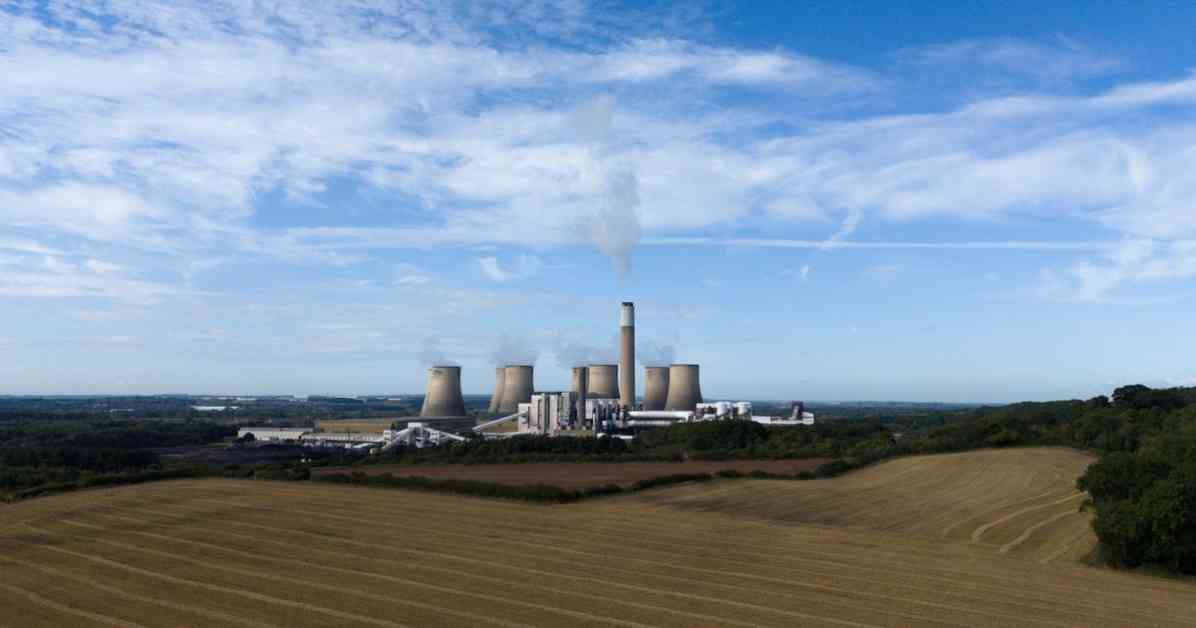Britain’s Historic Shift: The Closure of the Last Coal Power Plant
The closure of Ratcliffe-on-Soar power station in the UK marks a significant milestone in the country’s energy history. With its four coal-fired boilers, eight cooling towers, and towering chimney, the power station has been a prominent feature in the East Midlands skyline since 1968. However, after 57 years of generating electricity for about two million homes, Ratcliffe-on-Soar will close its doors for the final time on Monday.
This closure symbolizes the end of an era for Britain, as it brings to a close the country’s 142-year reliance on coal to produce electricity. The journey began in 1882 with the opening of the Holborn Viaduct power station in London, the first of its kind in the world. Coal played a major role in the national energy supply throughout the 20th century, accounting for about 80% of UK power in 1990. However, over the years, a shift towards cleaner and more sustainable energy sources has been evident.
The Rise of Renewables and Decline of Coal
In recent years, the UK has seen a significant increase in the use of renewables, primarily wind and solar power. This shift has been reflected in the country’s energy mix, with renewables now making up more than half of the total supply. According to Government statistics, coal’s contribution to the UK’s energy supply has dwindled, with the fossil fuel making up just 1% of the mix last year.
The closure of Ratcliffe-on-Soar is part of a broader trend in the UK, with 15 coal power plants either closing or switching fuels in recent years. This transition has been accompanied by an increase in the use of gas, which has risen from 28% of the power mix in 2012 to 34% last year. The move towards cleaner energy sources reflects a global shift towards reducing carbon emissions and combating climate change.
The Road to Net Zero: Future of Energy in the UK
As the UK looks towards a future of net zero emissions, the closure of Ratcliffe-on-Soar represents a significant step in the country’s energy transition. The newly-elected Labour Government has set ambitious targets to achieve net zero emissions from electricity generation by 2030. To support this goal, the Government has established a state-owned energy investment company, GB Energy, and has lifted restrictions on new onshore wind projects in England.
In addition, the Government has awarded contracts for new green power projects, including onshore and offshore wind farms and solar farms. These projects are expected to generate enough power for 11 million homes, further reducing the country’s reliance on fossil fuels. Minister for energy Michael Shanks emphasized the importance of transitioning to clean energy sources, not only to combat climate change but also to ensure energy security and independence.
The Global Shift Towards Clean Energy
The closure of Ratcliffe-on-Soar is part of a broader global trend towards phasing out coal and transitioning to cleaner energy sources. While many countries are still heavily reliant on coal for electricity generation, there is a growing recognition of the need to shift towards renewables. China, for example, accounted for over half of global coal-fired generation last year but also added seven times more renewable energy capacity than coal.
The transition from coal to renewables is not only a crucial step in combating climate change but also in stabilizing energy prices and ensuring energy security. The UK’s rapid shift away from coal demonstrates that with clear commitments and supportive policies, the transition to clean energy can happen faster than anticipated. This transition is not without its challenges, but with the right approach and investments in job creation and skill development, a fair and sustainable transition is possible.
In conclusion, the closure of Ratcliffe-on-Soar power station is a historic moment for the UK’s energy sector. It signifies the country’s commitment to phasing out coal and transitioning to cleaner and more sustainable energy sources. As the UK looks towards a future of net zero emissions, the closure of Ratcliffe-on-Soar serves as a reminder of the importance of investing in renewable energy and reducing our reliance on fossil fuels.












